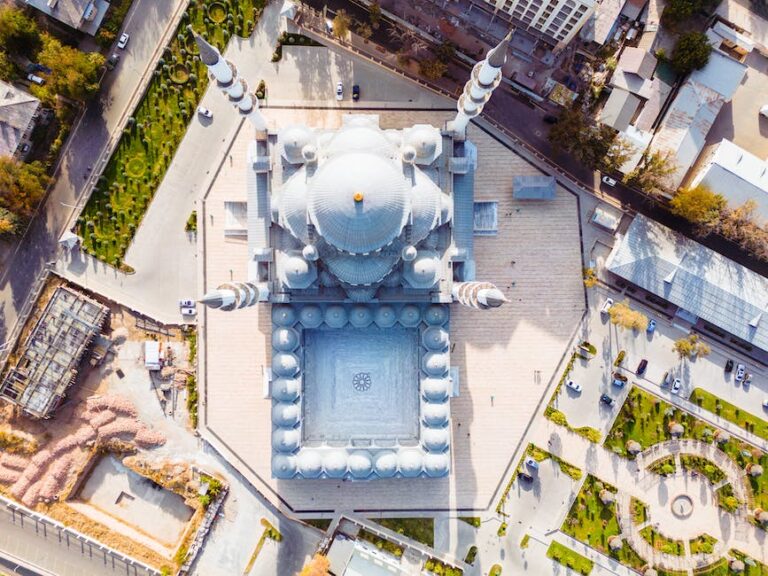Exploring the Different Interpretations of Jihad in Islam
Jihad is an Arabic term that means “struggle.” It is often associated with violence and terrorism, but it has a broader and more complex meaning in Islam. Jihad is a spiritual concept that refers to the struggle to maintain a close relationship with Allah and to promote peace and righteousness in society. It can be divided into two categories: greater jihad and lesser jihad.
The Concept of Greater Jihad
Greater jihad, also known as the inner struggle or spiritual struggle, refers to the struggle to maintain faith and overcome one’s own desires and ego. It involves the daily effort to follow Islam, including prayer, fasting, charity, and performing good deeds. The Prophet Muhammad once said, “The best jihad is the one in which you strive against your own self and your evil inclination.”
In essence, greater jihad is a lifelong journey towards self-improvement and righteousness. It is about cultivating a strong connection with Allah and aligning oneself with His will. The goal of greater jihad is to attain spiritual purity and closeness to Allah.
Understanding Lesser Jihad
Lesser jihad, also known as the physical struggle or defensive jihad, refers to the use of force to protect oneself, other Muslims, or the overall Muslim community from harm. This concept is often cited in the context of war, but it can also refer to self-defense or legal retaliation against injustice. The Quran states, “Permission to fight is given to those who are fought against because they have been wronged. Most surely Allah is able to assist them.” (22:39)
It is important to note that the use of force is always a last resort in Islam and only permissible under specific conditions. Lesser jihad must be carried out with justice, proportionality, and the intention of protecting innocent lives. The Prophet Muhammad also emphasized the importance of avoiding harm to non-combatants, women, children, and the elderly.
Overall, both greater jihad and lesser jihad are important concepts in Islam that emphasize the struggle for righteousness and justice. They both encourage Muslims to strive for spiritual purity and to defend against harm and injustice.
The Ethics of Jihad in Islam
The ethics of jihad are central to the proper understanding and implementation of this concept in Islam. Jihad must be carried out with justice, mercy, and respect for human life and dignity. The Quran states, “Fight in the cause of Allah those who fight you, but do not transgress limits; for Allah loves not transgressors.” (2:190) This verse makes clear that any military action must be proportionate and within the bounds of Islamic ethics and principles.
Furthermore, the Prophet Muhammad emphasized the importance of showing mercy and kindness towards one’s enemies. He said, “Do not wish for an encounter with the enemy. Pray to Allah for peace and security. If you should encounter them, bear patience and show restraint.”

Contextualizing Military Jihad
Military jihad, often referred to as holy war, is a sensitive topic and must be understood within its proper historical and contextual framework. The Quran allows for military jihad in certain situations, such as self-defense and the protection of the Muslim community. However, this permission is not absolute and must be carried out with strict adherence to Islamic ethics.
In addition, the concept of military jihad evolved throughout Islamic history and various interpretations and practices emerged. For example, the concept of the just war was elaborated upon by Islamic scholars, who laid down conditions and restrictions for the use of force in Islam. These conditions include a legitimate cause, a declaration of war, the protection of civilians, and the avoidance of unnecessary harm and destruction.
Historical Examples of Jihad in Islam
Jihad has played a significant role in Islamic history, particularly during the early period of Islam. One of the most famous examples of military jihad is the Battle of Badr, which took place in 624 CE. The Muslims, who were vastly outnumbered and outmatched in terms of weaponry, were able to achieve a decisive victory over the Meccans. This victory has been considered a turning point in Islamic history and is commemorated as a major event in the Islamic calendar.
Other examples of military jihad in Islamic history include the early Islamic conquests and the Crusades. Despite the controversies and debates surrounding these historical events, it is important to study and understand them in order to gain a more nuanced and comprehensive view of the concept of jihad in Islam.
Debunking Common Myths about Jihad
Unfortunately, there are many misconceptions and myths surrounding the concept of jihad in Islam. One common misconception is that jihad means holy war against non-Muslims. However, this is not true. As previously mentioned, jihad is a broad and complex concept that encompasses spiritual struggle, self-defense, and the protection of innocent lives.
Another common myth is that Muslims are commanded to conquer the world and impose their religion on others. Again, this is not true. Islam recognizes the freedom of belief and conscience, and Muslims are encouraged to engage in dialogue and peaceful coexistence with people of different faiths and beliefs.
It is important to challenge and refute these myths in order to combat Islamophobia and promote a more accurate and nuanced understanding of Islam and its teachings.
The Role of Jihad in Modern Times
In modern times, the concept of jihad is still relevant and important in the Islamic world. Muslims continue to face various forms of oppression, injustice, and violence, and the idea of standing up for one’s rights and protecting one’s community is more relevant than ever.
However, it is also important to be cautious and responsible in the modern context, especially with the rise of extremist groups that justify violence in the name of jihad. The vast majority of Muslims reject such extremism and rely on moderate interpretations of jihad that prioritize peace, compassion, and justice.
In addition, the concept of greater jihad remains relevant in modern times, as Muslims continue to struggle against their own weaknesses, temptations, and negative influences in society.
Overall, the concept of jihad in Islam is multifaceted and complex, and must be understood within its proper ethical, historical, and contextual framework. By promoting a more accurate and nuanced understanding of jihad, Muslims can combat extremism, promote peace and justice, and make meaningful contributions to the global community.







